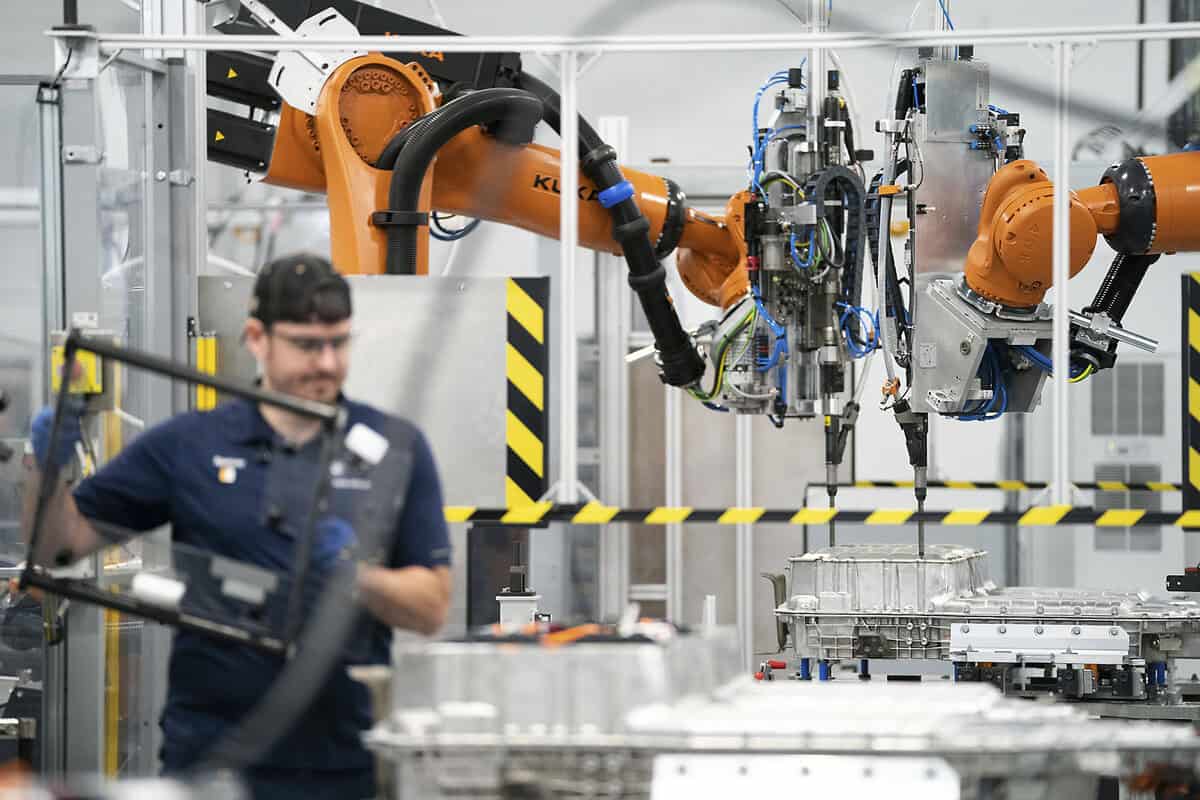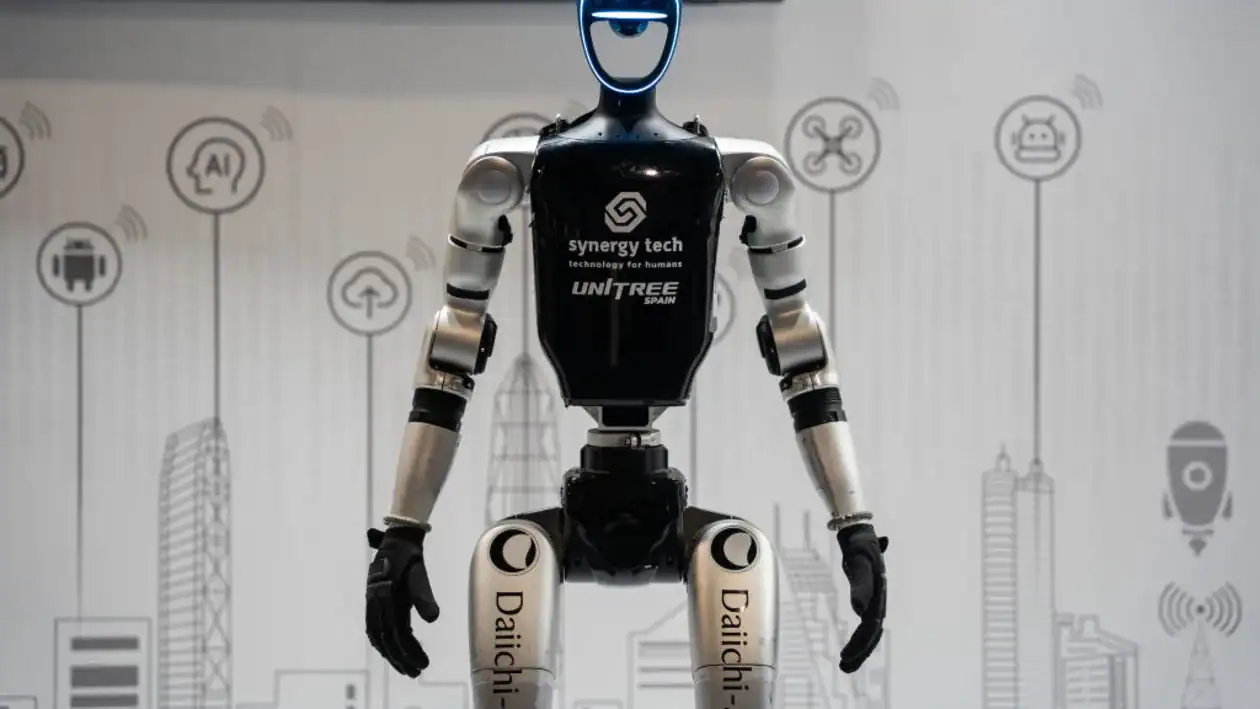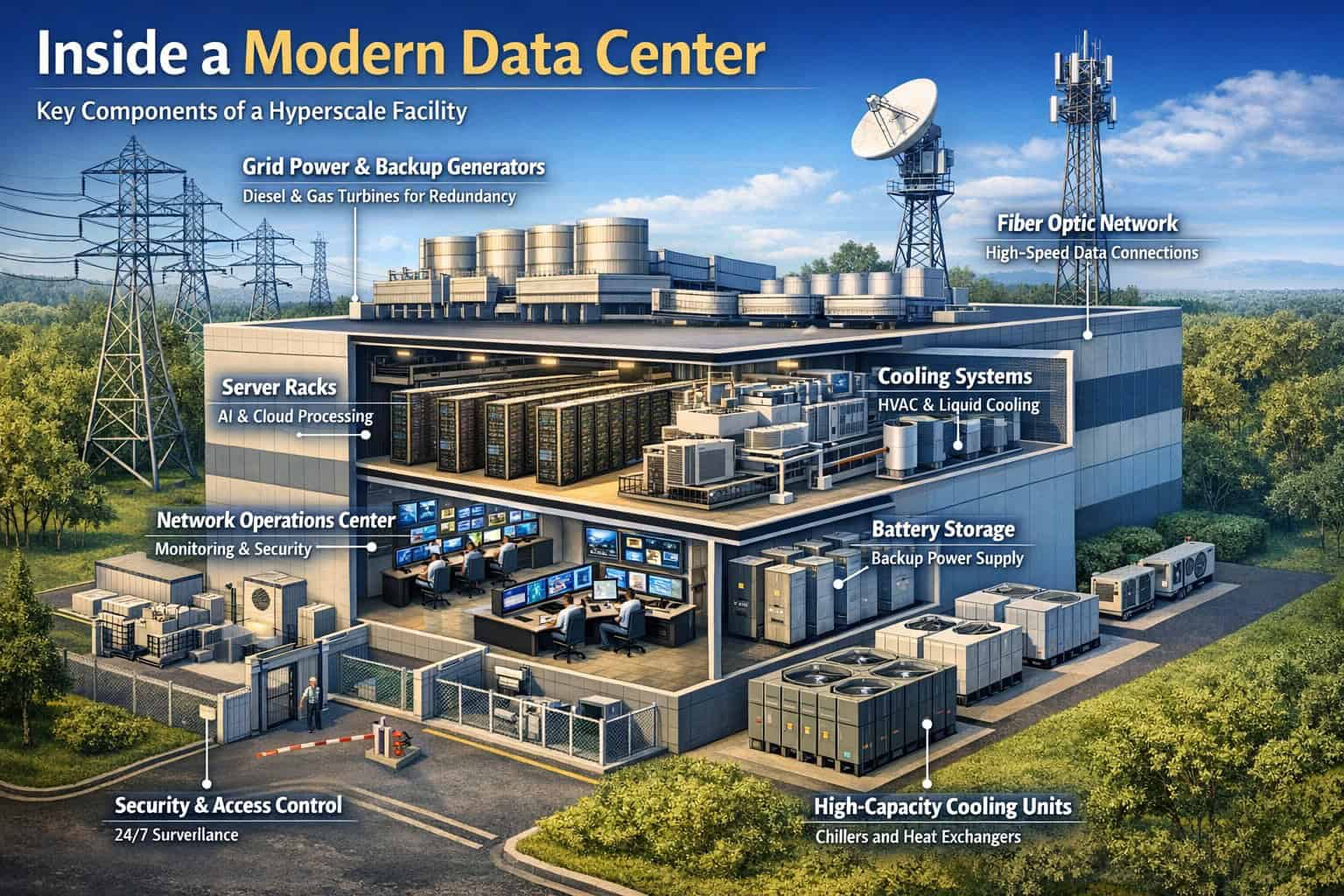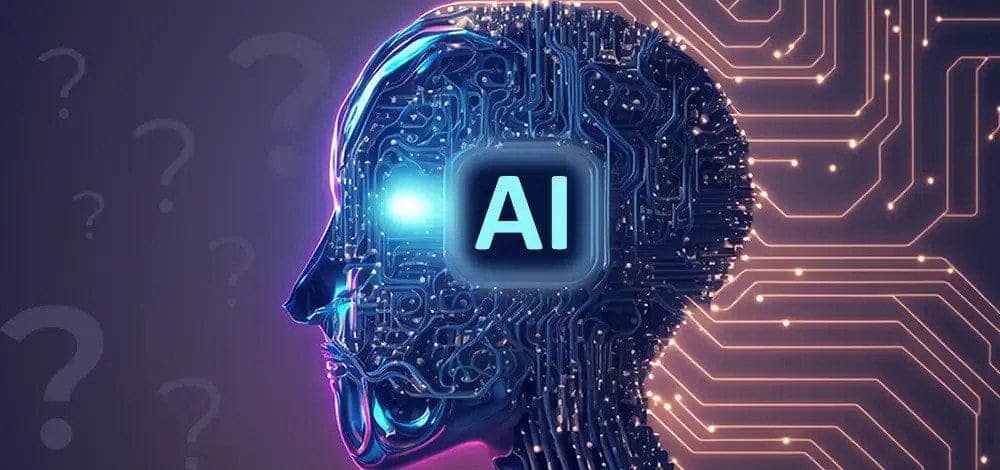DETROIT – General Motors signed a “non-binding memorandum of understanding” to deploy new and used electric vehicle batteries for storage systems that power a Nevada microgrid, which, in turn, powers a modular data center for AI infrastructure company Crusoe, the company said in a press release.
GM defines the terms of the deal as a business plan in place that outlines the automaker’s intentions to work together moving forward on the deployment of energy storage systems meant to strengthen American grid resiliency.
This expands on an existing partnership with Redwood Materials, which the companies announced in May 2024 to recycle production scrap from two Ultium Cells battery plants, in Warren, Ohio, and Spring Hill, Tennessee. Ultium Cells is the joint battery cell manufacturing venture between GM and LG Energy Solution.
These GM EV batteries are already powering Redwood’s microgrid in Nevada supporting AI infrastructure company Crusoe. That installation can deliver 12 megawatts of power at any instant, and the total capacity of the site is 63-megawatt hours, GM said.
“The market for grid-scale batteries and backup power isn’t just expanding, it’s becoming essential infrastructure,” said Kurt Kelty, vice president of batteries, propulsion and sustainability at GM. “Electricity demand is climbing, and it’s only going to accelerate. To meet that challenge, the U.S. needs energy storage solutions that can be deployed quickly, economically, and made right here at home. GM batteries can play an integral role.”
The business of recycling batteries
The news comes on the heels of several announcements GM has made regarding investment in electric vehicle propulsion. Earlier this week, GM and LG said they would scale production of lithium iron phosphate battery cells, a lower-cost alternative to the nickel-rich batteries the companies also produce together, at their Ultium facility in Tennessee.
Redwood Materials, founded and run by former Tesla chief technology officer JB Straubel, also partners with Toyota Motor Co., Ford Motor Co., Volvo, Volkswagen and Audi to extract lithium, nickel, and cobalt from “end-of-life” battery packs. Redwood Materials then remanufactures those materials into cathodes, according to its website.
“Both GM’s second-life EV batteries and new batteries can be deployed in Redwood’s energy storage systems, delivering fast, flexible power solutions and strengthening America’s energy and manufacturing independence,” Straubel said in a statement.
Read more at Detroit Free Press






